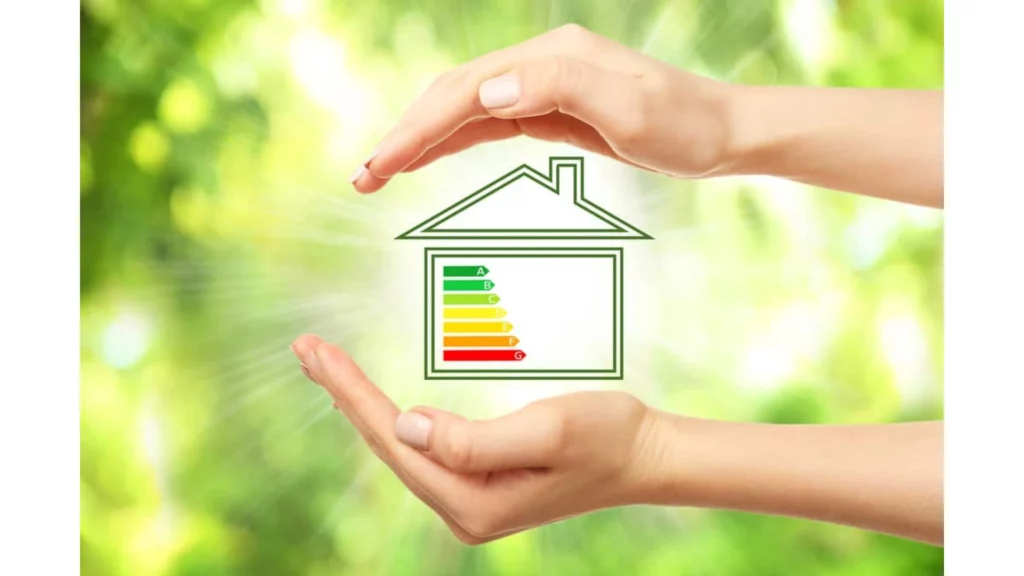Energy Efficient Homes
As a homeowner, I am well aware of the ever-evolving importance of energy efficiency in today's world. I find myself seeking practical methods to create more energy efficient homes, not only to reduce my monthly energy expenses but also to contribute to a healthier environment.
The appeal of having a comfortable and eco-friendly living space while simultaneously cutting down on my bills and carbon emissions is incredibly enticing.
I have come to understand that energy efficient homes for sale offer numerous benefits beyond just financial savings.
With improved insulation and efficient appliances, these homes ensure a consistent and pleasant indoor temperature throughout the year, free from drafts and temperature fluctuations.
This not only enhances the comfort of my living environment but also promotes better health and well-being for my family.

Understanding Energy-Efficient Homes
Energy-efficient homes are a modern approach to sustainable living, using innovative design and technology to conserve energy and minimize environmental impact.
The design process of an energy efficient house involves a comprehensive analysis of various factors that influence energy consumption.
Architects and engineers consider the orientation of the house, taking advantage of natural sunlight and shading to optimize passive solar heating and cooling.
Why are Energy-Efficient Homes Essential?
Energy efficient homes are important for many reasons, including personal comfort and saving money. They also help reduce the use of fossil fuels and lower greenhouse gas emissions, which is good for the environment.
Energy efficient homes have a positive impact globally. Conserving energy lessens strain on the planet's finite resources.
Fossil fuel depletion is a challenge for future generations. Energy-efficient measures prolong resources and promote sustainable living.
Energy-efficient homes help reduce greenhouse gas emissions, which combat climate change and protect the planet for future generations.
Greenhouse gases trap heat, causing rising global temperatures and disruptive climate patterns. By reducing energy consumption, we slow down this warming effect and make a valuable contribution to mitigating climate change.
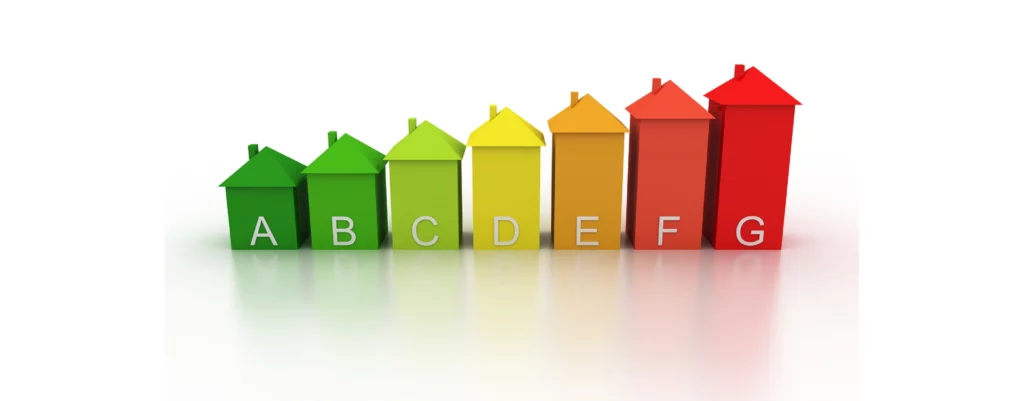
10 Tips to Improve Energy Efficiency: Practical Tips and Methods
Here are the top techniques and improvements that can enhance your home's energy efficiency:

1. Home Insulation:
- Acts as a thermal barrier.
- Use materials like fiberglass or mineral wool.
- Insulate cavity walls first.
- Reduces energy bills and carbon footprint.
2. Solar Panels:
- Generate energy from sunlight.
- Reduce dependency on fossil fuels.
- Low maintenance and work in all daylight.
- Long-term cost savings.
3. Replace Old Appliances:
- Upgrade to energy-efficient models.
- Look for the EU Energy Label for energy usage information.
- New models are designed for better energy efficiency.
4. Water-Efficient Showers:
- Consider switching to baths occasionally.
- Use water-saving shower heads.
- Reduces water loss and energy usage.
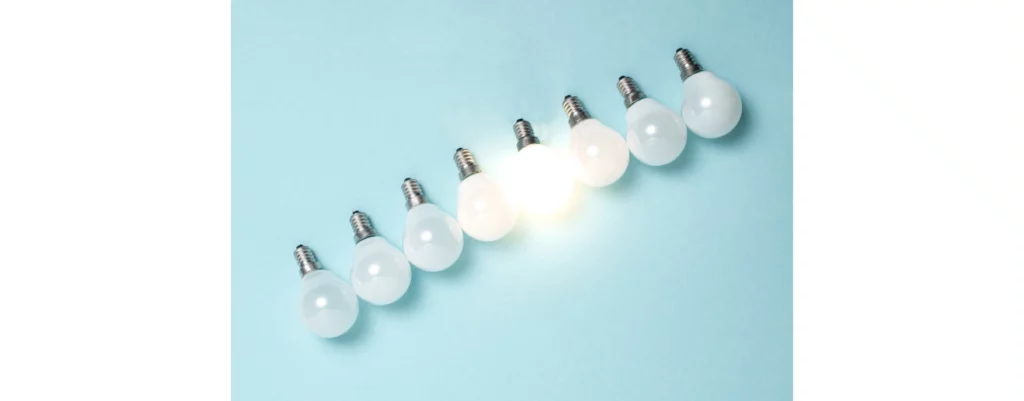
5. Energy-Saving Light Bulbs:
- Use up to 80% less energy than traditional bulbs.
- Have a longer lifespan.
- Available in various sizes and brightness levels.
6. Cold Wash in Laundry:
- Use cold wash for lightly soiled laundry.
- Reduces energy consumption of the washing machine.
7. Double-Glazing Windows:
- Improves heat retention and sound insulation.
- Cost-effective over time.
- Replace old, leaky windows.
8. Smart Thermostat:
- Monitors and manages energy use.
- Helps identify areas for reducing energy loss.
- Can reduce energy bills over time.
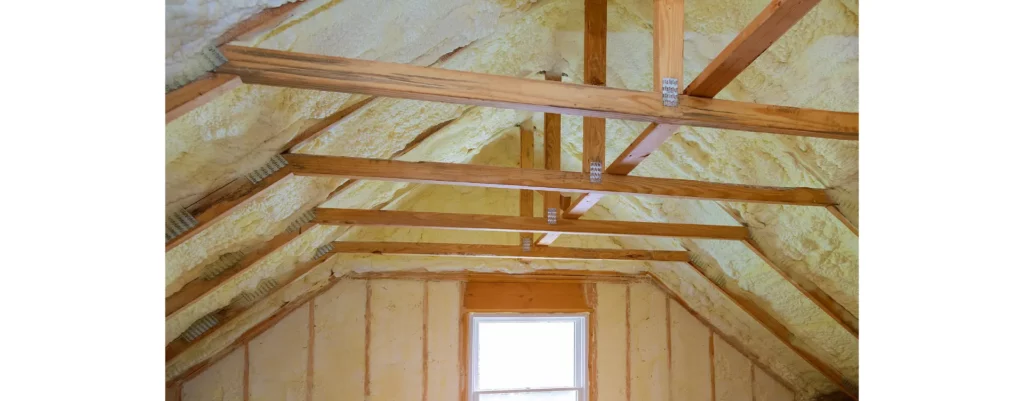
9. Loft Insulation:
- Prevents heat from escaping through the roof.
- Essential even in rarely used lofts.
- Materials are placed under the roof or between walls in conversions.
10. LED Lighting Systems:
- Switch to LED lighting for indoor and outdoor use.
- LEDs consume significantly less power than traditional bulbs.
- Longer lifespan, reducing the frequency of replacements.
- Available in a wide range of color temperatures and brightness levels.
Implementing these tips can significantly enhance your home's energy efficiency, leading to lower energy bills and a reduced environmental impact.

The Process of Home Energy Auditing: Evaluating Your Efficiency
Before plunging into the sea of energy efficiency improvements, it's prudent to have a thorough understanding of your home's current energy consumption.
A home energy audit, also known as an energy assessment, is the best way to identify areas that need improvement and can help you prioritize your energy efficiency upgrades.
The Benefits of a Home Energy Audit
A home energy audit examines a property's energy consumption in detail, analyzing energy flows within the building.
The goal is to identify areas of energy waste or inefficiency. This thorough process has numerous benefits for homeowners and the environment.
- Pinpointing Energy Loss Areas: Through the audit, professionals can identify specific locations and components within the home where energy loss occurs. These areas may include poorly insulated walls, leaky windows and doors, inadequately sealed ductwork, or even inefficient appliances.
- Identifying Effective Energy Conservation Strategies: The audit's detailed analysis provides valuable insights into effective energy-saving strategies that are tailored to the unique characteristics of the home.
- Improving Home Comfort: A comprehensive energy audit not only focuses on energy efficiency but also takes into consideration the overall comfort of the household.
- Reducing Energy Bills: As a direct result of implementing the energy-saving recommendations from the audit, homeowners can experience substantial reductions in their energy bills.
- Decreasing the Home's Carbon Footprint: Energy consumption in homes is often associated with carbon emissions, especially if the energy comes from fossil fuel-based sources. By undertaking an energy audit and taking steps to increase efficiency, homeowners actively contribute to reducing their home's carbon footprint.
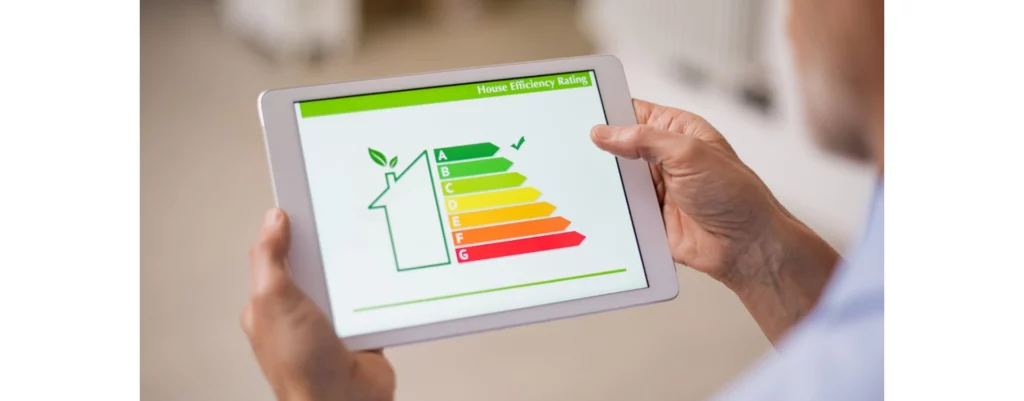
DIY Home Energy Audit vs. Professional Audit
When it comes to evaluating a home's energy efficiency, homeowners have two primary options: conducting a DIY energy audit or hiring a professional auditor.
Each approach offers distinct advantages and limitations, making it essential to understand their differences to make an informed decision.
DIY Home Energy Audit
DIY home energy audits are a cheap way for homeowners to assess their energy usage.
Although not as accurate as professional audits, they can still uncover common energy issues by analyzing usage patterns and suggesting improvements.
Advantages of a DIY Audit:
- Accessibility: Homeowners can perform a DIY energy audit without the need to hire external professionals, making it more convenient and budget-friendly.
- Easy Fixes: A DIY audit may uncover simple fixes that homeowners can address themselves, such as sealing air leaks around doors and windows or insulating exposed pipes.
- Awareness: Going through the DIY audit process can raise awareness about energy consumption patterns and encourage more energy-conscious habits.
Limitations of a DIY Audit:
- Limited Precision: DIY audits typically lack the advanced tools and equipment used by professionals, resulting in less precise identification of energy inefficiencies and potential savings.
- Technical Expertise: Homeowners may lack the specialized knowledge and skills needed to assess complex energy systems or understand the impact of various building elements on energy performance.

Professional Home Energy Audit
A professional energy audit involves certified auditors using specialized tools to evaluate a home's energy efficiency. They thoroughly examine every aspect of the house to identify areas for improvement.
Advantages of a Professional Audit:
- Precision: Professional auditors use advanced equipment like infrared cameras and blower doors to detect hidden energy loss areas with high accuracy.
- Comprehensive Analysis: A professional audit covers all aspects of energy usage, including HVAC systems, insulation, appliances, and more, offering a holistic perspective.
- Tailored Recommendations: Based on the detailed findings, auditors can provide customized recommendations and prioritize energy-saving measures based on cost-effectiveness and potential impact.
- Access to Incentives: Some energy efficiency programs and incentives require a professional audit for eligibility, allowing homeowners to access financial assistance for upgrades.
Limitations of a Professional Audit:
- Cost: Hiring professionals can be more expensive upfront compared to a DIY audit, but the potential long-term savings may outweigh the initial investment.
- Time Commitment: A professional audit may take more time to schedule and complete, as it involves in-depth assessments and analysis.
Conclusion
As a homeowner, I've learned a lot from this guide on energy efficient houses. Saving money and helping the environment has become a priority for me. I now feel responsible for making positive changes in my home.
Learning about energy efficiency techniques has motivated me. Proper home insulation maintains a comfortable indoor temperature. Installing solar panels has financial benefits and a positive environmental impact.
To make my home eco-friendly, I'll upgrade appliances and reduce water waste. I'll also use energy-saving bulbs and consider a smart thermostat and double-glazed windows.
Sources:

